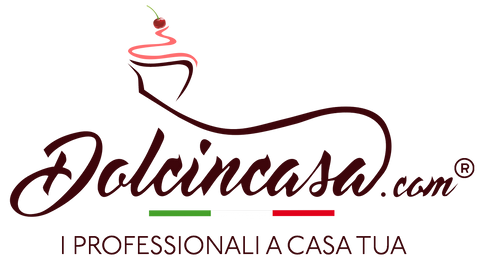The importance of spices is known to many for the role they have played over the centuries not only in the economic and food sector, but also in culture. Among the many spices known in the West, cinnamon is certainly one of the most renowned and prized in the world. In the kitchen it is used in sweet recipes and savory dishes, but not everyone knows how much it is appreciated as a natural remedy and panacea for health. Let's discover together all the benefits and many properties of cinnamon! Decorative image with cinnamon, frosted cookies, nuts and pine cones
Cinnamon in history
Native to southern Asia, cinnamon has a history spanning millennia. The first news dates back to 2700 BC: in that period cinnamon was used in China to treat fever, intestinal problems and menstrual pain. In India, Ayurvedic healers administered it for similar problems and to combat cold-related ailments, thanks to the warming effects that this spice has on the body. Furthermore, it was used as a natural remedy against old age, as it was capable of improving the appearance and quality of the skin. Its antioxidant properties made it widely used in the kitchen for the preservation of meat, as it was able to block the putrefaction process. This property was highly appreciated in Egypt, where the spice was used in mixtures for embalming the dead. It is mentioned by the Jews in the Bible, in the book of Exodus, for its perfume and its high cost, while the Greeks and Romans also used it as a spice, as a perfume but also as a cure for digestive problems and for its aphrodisiac effects. It was imported to the West during the Middle Ages by the Dutch, who became the main importers in Europe. Modern herbalists are convinced of the many benefits of cinnamon and the effects this spice has on human health. These, in particular, recommend its use to relieve nausea, vomiting, diarrhea and digestive problems.
What is cinnamon and where does it come from?
Cinnamon and various spices as decoration
Cinnamon is a very particular spice. In fact, unlike other spices, it is not obtained from seeds, flowers, fruits or roots, but from the bark of an evergreen shrub. There are several plants used in the production of cinnamon which give rise to as many varieties of the famous spice. However, it is mainly obtained from the bark of two shrubs, no older than three years, belonging to the Lauraceae family: the Cinnamomun zeylanicum and the Cinnamomum cassia. While cassia is mainly produced in China, Cinnamomum zeylanicum is native to Sri Lanka and is known on the market as Ceylon or "queen" cinnamon because it is more valuable. The latter is distinguished from cassia by colour, consistency and flavour. In fact, it has a light hazelnut color, while cassia is darker. It is also thinner, fragile, easily crumbled and has a more delicate flavour, while cassia has a more pungent flavour. The quality of cinnamon, in addition to being linked to the area of origin, varies based on the age of the branches or stems, as the younger they are, the higher the quality of the spice. The bark is harvested twice a year, in spring and during autumn, after the rainy season. The external part of the bark, with a brownish colour, is scraped off and the part that remains, with a lighter colour, is the cinnamon. It is rolled up on itself, until it takes on the shape of a woody stick, and left to dry. It is available on the market both in powder form and in the form of torches which can be crumbled at the time of use. The latter retain their properties and aroma better, in addition to the fact that, if well preserved, they last longer. The best way to store cinnamon is to place it in an airtight glass container, so as not to lose its aroma.
Uses and properties of cinnamon
With an aromatic scent, with sweet and spicy notes, cinnamon is used in different ways and in different areas. It has many qualities that make it one of the most purchased and prized spices. If dosed in moderation, it is able to improve not only foods but also our state of health.
Cinnamon in the kitchen
Two glasses of mulled wine with cinnamon and apples. In the kitchen it finds space in many recipes, both sweet and savory. It is excellent sprinkled on cream, hot chocolate or yogurt, but it expresses its best with cooked fruit, especially apples. In the Italian tradition, cinnamon is added to the batter of pancakes or to the dough of gnocchi or shortcrust pastry. In Europe, cinnamon desserts are a Christmas classic: in fact, desserts such as apple strudel and ginger and cinnamon biscuits cannot be missing from the laid tables. It is also used to spice liqueurs and alcoholic drinks such as punch, sangria, mulled wine and apple cider. In the Maghreb, the Middle East and India it is the main ingredient of numerous sweet and sour dishes and rice and meat dishes. It is present in numerous spice mixes, such as curry, garam masala, baharat and ras el hanout. Furthermore, cinnamon is added to chewing gum because it can eliminate bad breath. A tip: if we have to add cinnamon to boiling liquids, it is better to use the stick one.
The benefits of cinnamon
Many studies have investigated the numerous properties of cinnamon and have recognized various beneficial and healing qualities over time. Let's list some of them:
- Antiseptic and antibacterial: Cinnamon is a natural remedy against fever, sore throat, cough and cold. This spice, in fact, in addition to combating colds, is able to stimulate the immune system, strengthen the body's natural defenses and thus counteract the development of numerous harmful microorganisms. If sprinkled on cuts from grazes, it is able to disinfect and relieve pain;
- Antifungal: it is useful, in fact, to fight the Candida albicans fungus, responsible for vaginal infections, and Escherichia coli, which causes urinary tract infections;
- Antioxidant: Cinnamon has a hydrating and purifying action on the skin, with numerous benefits on the complexion and capable of preventing the signs of ageing. Also useful for reinvigorating hair and slowing down hair loss;
- Astringent: Cinnamon helps resolve intestinal problems, such as diarrhea and flatulence;
- Digestive: helps digestion, as it stimulates salivation and the secretion of gastric juices, facilitates the breakdown of fats and sugars in the blood and helps reduce the feeling of hunger caused by excess blood sugar levels;
- Antidiabetic: the addition of cinnamon to specific meals can slow down blood sugar fluctuations and contribute to the prevention of the development of diabetic disease;
- Anti-cancer: Cinnamon can reduce the risk of colon cancer;
- Energizing: it is rich in vitamins A, C, K and group B vitamins. It stimulates the nervous system, promoting concentration and memory. Use is recommended in cases of senile dementia or neurodegenerative diseases such as Alzheimer's and Parkinson's;
Anti-inflammatory: helps soothe menstrual pain;
Fluidifier: cinnamon essential oil, if used under medical prescription, promotes circulation;
Aphrodisiac.
Cup of coffee with cinnamon sticks, grains and star anise decoration
Some quick tips to benefit from the properties of cinnamon
These properties make it perfect for preparing infusions, herbal teas and smoothies. In fact, the simplest way to enjoy the benefits of cinnamon is to use it in the preparation of hot drinks, such as the classic cinnamon herbal tea: just immerse a cinnamon stick in boiling water for 10-15 minutes. A ginger and cinnamon herbal tea, for example, can help us digest, especially after a heavy meal. If added to hot milk, cinnamon helps treat sore throats and colds, while used in tea it promotes weight loss and reduces blood sugar and cholesterol. The combination of cinnamon and honey allows you to enjoy numerous health benefits. Taken every day, they can strengthen the immune system and protect the body from numerous disorders and diseases. Cinnamon, if taken in normal doses (maximum 3 grams per day), should not produce side effects. As a precaution, it is better not to administer it to children under two years of age and to pregnant women, as it stimulates contractions. Due to its properties it is also not suitable for those suffering from insomnia. If used for therapeutic purposes, it is preferable to be advised by your doctor.
Cinnamon in cosmetics
Finally, the properties of cinnamon are also appreciated in the perfumery and cosmetics sector. It is used to flavor toothpastes and mouthwashes due to its antiseptic properties. It is also used in perfumes and deodorants. Noodles with vegetables, meat and cinnamon Now that you know everything about cinnamon and its many benefits, it can no longer be missing from your pantry! Visit our online shop and discover our proposals, such as our cinnamon sticks, our cinnamon powder or our cinnamon-flavoured dragees.





Comments (0)
There are no comments for this article. Be the first one to leave a message!